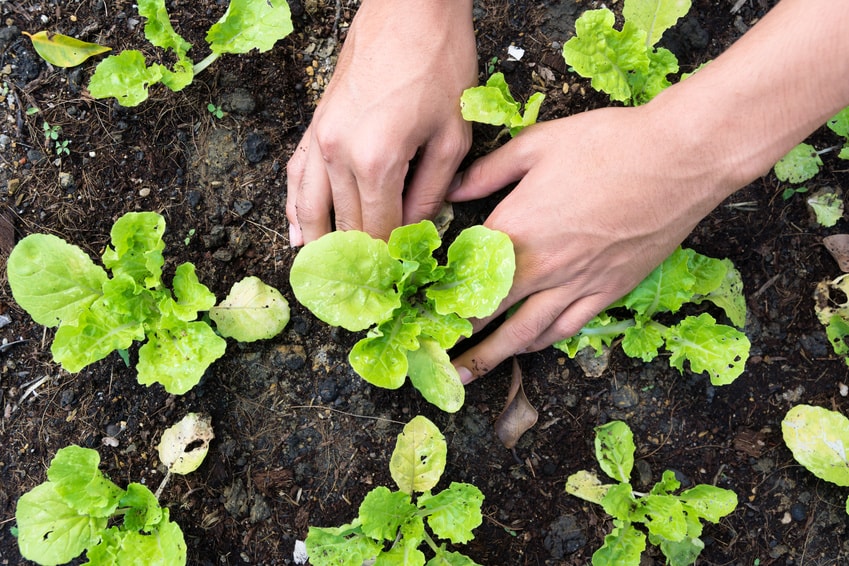A version of this post first ran in 2016.
Using graywater (sometimes spelled greywater) to irrigate your landscaping is an excellent way to reduce your water use in California’s drought-prone climate.
What Is Graywater?
Graywater is water generated from household use that would otherwise go to waste. Water from bathroom sinks, laundry, shower, bath and other sources can be reused for irrigation and landscaping features. Water that’s contaminated with human or animal waste and, in California and some other states, water from dishwashers and kitchen sinks can’t be used.
Benefits of Using Graywater
We use a surprising amount of water every day, much of which is wasted.
According to The Greywater Guide, the average person generates over 25 gallons of graywater each day, and a family of 4 produces enough to irrigate over 2,400 square feet of garden in a semi-dry climate.
Using water that would otherwise be wasted obviously helps conserve water, but it also has other benefits. Some waste particles in the water can become nutrients for the soil. Reducing the amount of waste water going into your septic system or sewer reduces stress on those systems and the amount of energy that would otherwise be needed to treat the water. Using graywater can also increase groundwater recharge, the process by which water moves into our aquifers.
You may also realize some savings on your water bill. In areas with little rain in summer (like Marin), graywater is cheaper to harvest than rainwater because it requires far less storage space – The Greywater Guide notes that a family of four can re-use more than 3,000 gallons of graywater per month, while an equivalent savings from rainwater would require using a cistern capable of storing at least 9,000 gallons of rainwater.
Types of Graywater Systems
Using graywater can be as simple as keeping a bucket in your bathroom to catch excess shower water or as sophisticated as installing a large, complex system that pumps hundreds of gallons per day from your home to your landscape.
Remodeling bath or laundry rooms is a great time to think about adding a graywater system. One of the simplest types of systems is a laundry-to-landscape system because it doesn’t affect existing plumbing or electricity and doesn’t require any special permits in California when state guidelines are followed. It uses the washing machine’s existing pump to move water through pipes to multiple outlets in your landscape.
A simple system may require altering your plumbing and, sometimes, adding a pump, but it can allow you to reuse water from a shower or bathroom sink, up to 250 gallons per day. Permitting requirements vary by municipality, but in Marin County, a simple system doesn’t require a permit but it does require you (or your contractor) to file a simple notification with Marin County Environmental Health Services (EHS).
Complex systems are capable of moving more water from residence to landscape. They use pumps, tanks and filtration systems, and should be designed by a qualified professional. Marin requires you to apply for an EHS permit to install a complex graywater system.
Using Graywater Safely
Graywater is safe to use for irrigation, but it’s important to remember that it hasn’t been treated and may contain pollutants and pathogens (germs) that could potentially cause illness. If you follow a few simple guidelines, you can keep your landscape – and the people and pets who use it – safe:
- Never drink or allow pets to drink or play in graywater.
- Remove any pooling or standing graywater as soon as possible.
- To prevent the growth of potentially harmful bacteria, don’t store untreated graywater longer than 24 hours.
- Always wash produce (or anything else that comes into contact with graywater) before consuming.
- Use garden-friendly soaps and laundry detergents that don’t contain bleach, boron, borax, sodium perborate, sodium trypocholorite or petroleum distillates, as these can be harmful to the soil or to plants.
New Regulations & Rebates
As of February 1, 2016, the Marin Municipal Water District (MMWD) requires anyone applying for new or enlarged water service for substantial residential or commercial remodels to install graywater recycling systems.


